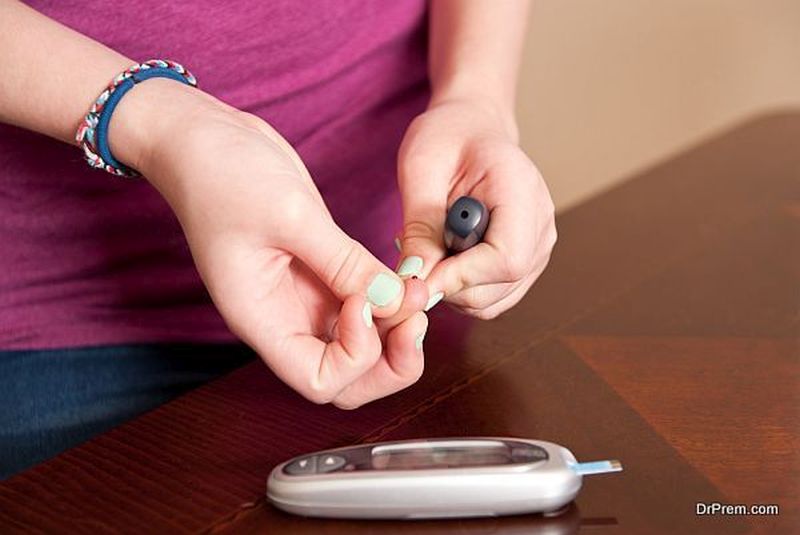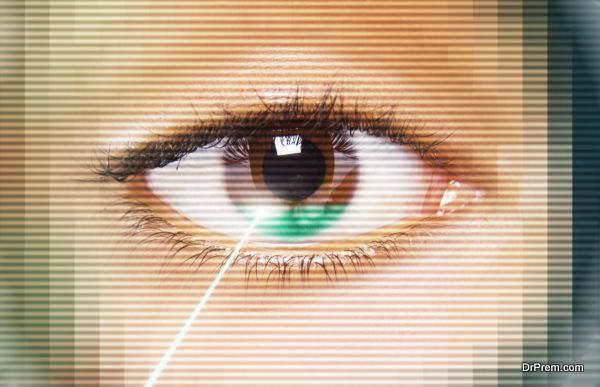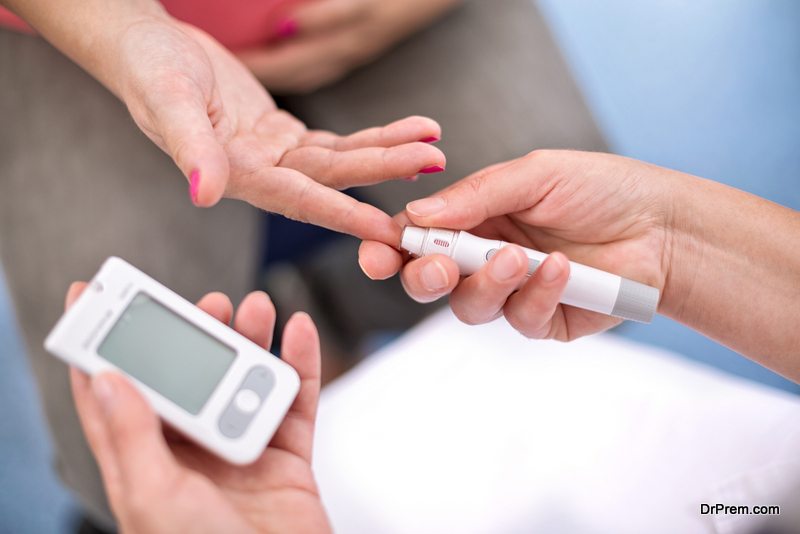Diabetes, in itself, is quite a task to deal with. The ongoing issues of hyperglycemia and hypoglycemia are synonymous with usual and common for a diabetic patient. However, diabetes also brings with it many more complications. Multiple studies in the past have brought to light the risk of diabetic retinopathy due to vitamin D deficiency.

In other words, diabetic patients who are Vitamin D deficient are more likely to fall prey to retinopathy than the ones who are not. Various studies have been conducted on this topic. If you or your loved one is a diabetic patient, read on to know more about how evident is this research.
Risk of Diabetic Retinopathy Due to Vitamin D Deficiency:

Diabetic Retinopathy does find its way into one’s health if the diabetic individual is suffering from Vitamin D deficiency. Yet, nothing can be said about when a person is most likely to develop it.
Alos, there are no reports stating with obvious confidence that a diabetic individual deficient in Vitamin D will go on to develop diabetic retinopathy.
Having said that, there are studies which point out the direct correlation between the two. Also, it is believed that people who live near the equator region are less likely to develop this condition since they have better access to Vitamin D compared to the ones living away from the equator.
The Study Conducted On The Same:

The Third National Health and Nutrition Examination Survey carried out a study on Vitamin D deficiency risks to establish the risk of diabetic retinopathy due to vitamin D deficiency. This study on Vitamin D deficiency risks, conducted from October 1, 1988, to September 30, 1994, had 1790 diabetic adults participating in it.
The method of regression analysis was used to determine the concentration of serum 25-hydroxyvitamin D. Other factors such as hyperglycemia, age, and sex were also taken into consideration.
It was soon concluded that individuals who displayed Diabetic Retinopathy because of Vitamin D deficiency were many. Their severity ranged as follows:
- No retinopathy- 27.9%
- Mild retinopathy- 28.2%
- Moderate to severe retinopathy- 43.2%
- Proliferative retinopathy- 64.6%
Although there is a relation between vitamin D deficiency and the onset of diabetic retinopathy, there still is no connection established between the severity of Diabetic Retinopathy because of Vitamin D deficiency increasing due to lower concentrations of serum dihydroxy vitamin D.
How Great Is The Risk Of Diabetes Retinopathy?

A meta-analysis was carried out of diabetic patients all over the world to study the risk of diabetic retinopathy due to vitamin D deficiency. All diabetic people ranging from 18 years and above belonging to countries such as Iran, Japan, India, USA, and Italy participated in this research and were tested for both Vitamin D deficiency and diabetic retinopathy.
It was established that most individuals having diabetic retinopathy also sported lower vitamin D levels. This study on Vitamin D deficiency risks was concluded by stating that Diabetic Retinopathy because of Vitamin D deficiency is one of the leading causes of blindness all over the world. Not only that, it is the only leading cause of blindness for people in the game group 20-64 years in the USA.
Almost every patient suffering from type 1 diabetes for 20 years or more is bound to acquire diabetic retinopathy, and so are 60% of type-2 diabetic patients all over the world.
How Can Vitamin D Deficiency Be Addressed?

The best way to dodge Diabetic Retinopathy because of Vitamin D deficiency is to keep your vitamin D levels in check. Below are laid down a few ways by which you can ensure that this situation never goes out of control.
- Go out often and get enough sunlight. This is true especially for people living in the north and south poles. Your body needs to absorb vitamin D from sunlight. So expose yourself to the sun as much as you can.
- Keep a tab on your dihydroxy vitamin D concentrations. Keep getting checked regularly for vitamin D.
- Don’t hesitate to resort to medicines and dietary supplements in order to regulate your vitamin D levels, if need be.
Conclusion:
The study on Vitamin D deficiency risks is not just linked to the risk of diabetic retinopathy alone. There are many more complications that set in if your body is undergoing lack of certain vitamins and proteins. The deficiency of vitamin D also results in a deficiency of calcium since the former plays an important role in the absorption of the latter in the body.
The most common effect of vitamin D deficiency is weakening of bones. Now that you know the risk of diabetic retinopathy due to vitamin D deficiency, osteoporosis and osteomalacia will also, most possibly, make their way into our lifestyle if one is deficient in Vitamin D. So, make sure you keep your vitamin levels under check.




